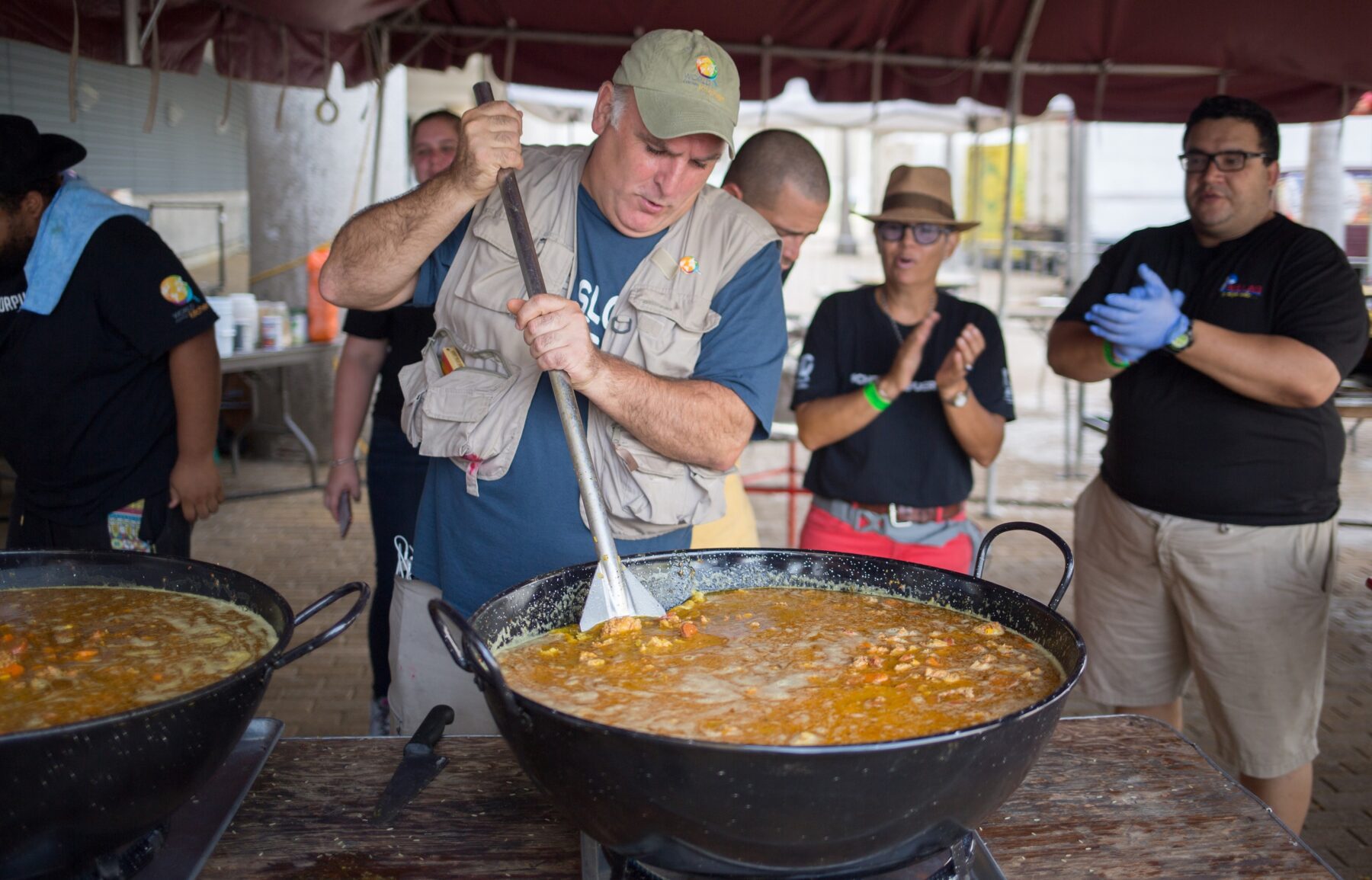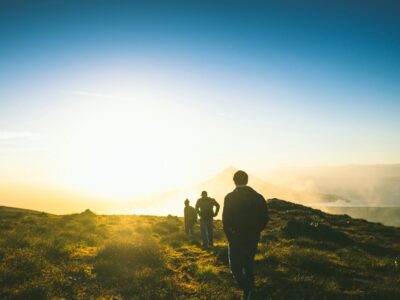For me, there is something deeply satisfying about preparing a meal for people. It brings me so much joy to make something delicious and gather around the table with friends, family, or neighbors, raising a glass, a blessing, and many laughs over rich conversation and a full plate. These meals are life-giving in the most literal and figurative ways.
Now, imagine that everything you have has been swept away by flood, earthquake, hurricane, or fire. When the very basics of survival are not available to you, a simple meal and a smiling face can mean the difference between hope and despair, life and death. Chef José Andrés understands the importance and power of a well-prepared meal, delivered into the heart of a crisis.
We Feed People: What to Expect
Available from National Geographic on Disney+, the 2022 We Feed People documentary highlights the journey of renowned Chef José Andrés and the rise of his nonprofit World Central Kitchen over a 12-year timespan, beginning in the wake of the Haitian earthquake in January 2010. The film captures Andrés’ background growing up in Spain and learning to cook from his parents in their kitchen, followed by their eventual immigration. Known as a revolutionary chef who likely introduced Spanish small plates to America, Andrés rose on the tide with other chefs to become a celebrity of cooking, which turned him into a brand all of his own.
Soon, though, his career as a chef would take an unusual and inspiring turn.
“When you receive a call, you never know when it will arrive,” said Andrés. When the Haiti earthquake happened, “I was on vacation in the Cayman Islands and felt so close and so far. I went to Haiti to see and to learn.”
Andrés gathered together others and began to do what he felt was necessary to get people fed, and World Central Kitchen was born.
He learned a central idea from cooking alongside the Haitian women: “You have to respect people. Food is about community,” Andrés remarks. The team learned quickly to listen to the locals and prepare food the way they like it, “and not the way some white savior thinks it should be cooked.”
Led by Andrés, World Central Kitchen has revolutionized the way food is served to people in disasters. The team has advised senators and presidents and served meals all around the globe during the last 12 years, evolving out of a scrappy make-it-happen attitude into a well-oiled machine prepared to enter the world’s most despairing crises to deliver hope.
“I wanted to create an organization that will be able to respond to events that disturb the lives of people,” said Andrés. “We are here with a simple mission: To make sure food is an agent of change.”
Finding the Love: Faithifying Your Viewing
The church loves to talk about being the hands and feet of Jesus. We are called to be the body of Christ, to move that body the way Jesus moved his when he walked in flesh and blood upon the land. The miracles and ministry Jesus performed were hands-on connections, from the famous Feeding of the 5,000 to Jesus’ instructions to Peter to “feed my sheep.”
My tendency is to over-spiritualize this call from Jesus. Sure, he fed people. Sure, he washed feet. Sure, he called us to do the same as him, but it’s a metaphor for service, a metaphor for having a humble heart… isn’t it?
Where will I be standing, though, when the King gathers all his sheep and goats at the end of the ages?
In Matthew 25, Jesus told his disciples, “Then the King will say to those on his right, ‘Come, you who are blessed by my Father; take your inheritance, the kingdom prepared for you since the creation of the world. For I was hungry and you gave me something to eat, I was thirsty and you gave me something to drink, I was a stranger and you invited me in, I needed clothes and you clothed me, I was sick and you looked after me, I was in prison and you came to visit me’” (Matthew 25:34-36 NIV).
Jesus said that the righteous won’t even realize they were caring for Jesus, but “Truly I tell you, whatever you did for one of the least of these brothers and sisters of mine, you did for me”
Matthew 25:40 NIV
How much of my time is spent thinking about doing these things, and how much of my time is spent actually doing these things? I think a lot about how I ought to walk like Jesus. I read a lot about the Christian life. I write a lot about the Bible and faith and prayer and what I ought to do, but what am I doing, really?
His message isn’t complicated. Feed the hungry. Give water to the thirsty. Be hospitable to strangers. Give clothes to those who need them. Care for the sick. Visit the inmates. Treat people like people, like the very image bearers God calls them in the first chapters of the Bible, like they have the breath of God breathed into them just like you, just like Jesus did throughout his earthly ministry, adjusting millennia of wandering and wondering what God really wants from his people and setting the path for the people of God to follow here forward.
That is the God we worship, the footwashing, mouth feeding, healing and helping friend to the neighbor, stranger, and prisoner, and that is God’s call for me and you: to walk the walk of these simple instructions, to remind each other of the million different ways we can show God’s love to each other.
Even, and maybe especially, through bowls of rice and beans.





 Copyright
2024
Root and Vine
Copyright
2024
Root and Vine